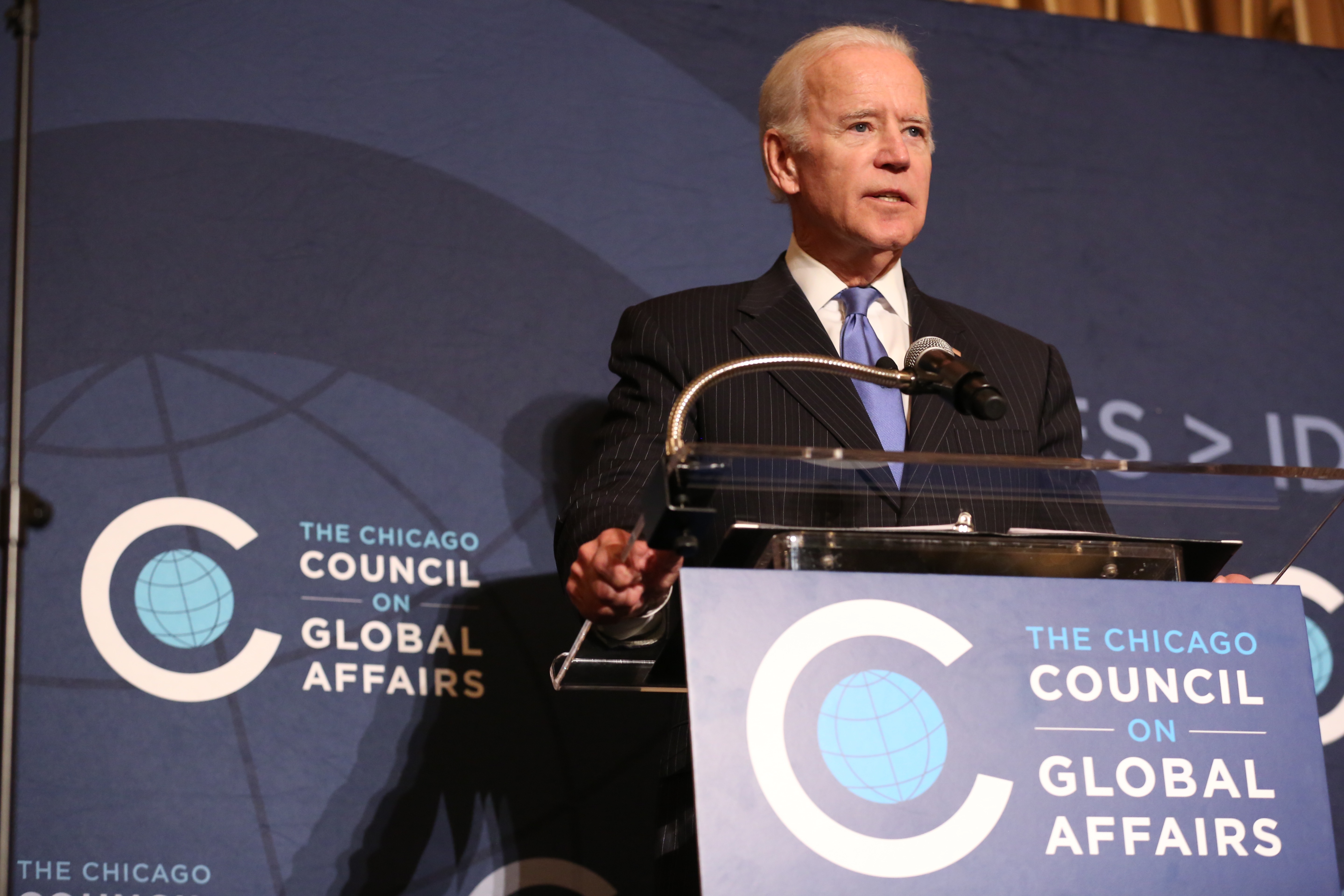This morning in a ballroom at the Palmer House Hotel, former vice president Joe Biden told a crowd of 1,000 that he's tried to “stay out of the mosh pit” of current affairs since leaving office, but took plenty of not-so-subtle shots at the Trump administration over the course of his hour-long address.
Biden, hosted by the Chicago Council on Global Affairs, focused on "Global Engagement in an Age of Uncertainty." He said Barack Obama often called him “the White House optimist” during his time as VP, and, despite expressing his concerns about the state of American leadership, Biden acted the part.
About midway through, he paused a bit and said, “I don’t want anyone to walk out of here thinking that there isn't any hope. I think there is hope. I’m not pessimistic about the fate of the world. Just get up and look at who the hell we are … we were taught and believed that America could do anything if it set its mind to it. What the hell has happened?”
Here are some of the other highlights from the lecture.
On the Trump administration’s foreign policy
Biden’s first (but far from the last) direct criticism of Trump’s foreign policy came within the first ten minutes of the lecture. He described it as “closed and clannish,” a divisive strategy that casts all relations into "us vs. them," winning or losing scenarios, rather than striving for common goals.
“One of the many problems plaguing this administration’s foreign policy, in my view, beyond ideological incoherence [and] inconsistent, confusing, and erratic decisionmaking, is an unwillingness or inability to solve problems,” he said.
On European alliances
Doubling down on his disdain for Trump’s isolationist methods, Biden said America’s partnerships in NATO, which were “unshakable … until this president” are key to solving global challenges. He cited Article 5 of the NATO agreement, the provision for collective defense, and raised his voice, shouting into the microphone in frustration.
“There should never be a question of [Article 5], not for a moment," he said. "Because once you question, those that live in the shadow of the bear begin to accommodate, begin to conclude they have no place to go. And without us, no one else, no other nation has the capacity to lead these alliances.”
On Putin’s Russia as a national security threat
Biden said Russian president Vladimir Putin “and his cronies” are acting out of a desire to preserve their own power. Rather than address instability in their own country, he said, they directed their efforts toward a “multi-faceted attack on the U.S. that seeks to undermine faith in our democratic institutions.”
Putin’s three major goals, as Biden sees it, are to “weaken and divide democratic states,” “create divisions in the trans-Atlantic community,” and "delegitimize the rules of international order.”
On the recent rise of Nazi demonstrations
Emphasizing the importance of fighting for the inclusive ideals of democracy that allow America to “lead by example,” Biden referenced the events in Charlottesville, Virginia, this summer.
“Did any of you ever think you would see, in a great American city, Nazis coming out from under the rocks, in the fields in the dark, carrying torches, reciting the same anti-Semitic bile that brought down Europe? … and those who came to oppose them would be judged in relative terms as both causing problems?," he said. "Ladies and gentlemen, silence is complicity … Continue to speak up and speak out.”
On getting millennials engaged in politics
The very last topic Biden addressed was low interest in entering politics among young people. He paraphrased a quote from Plato, saying, “The penalty good people pay for not being involved in politics is being governed by people worse than themselves.
“I say to all that generation: there’s no place for you to hide, no matter how well you do, no matter how much money you make," he said. "I’m confident that this is the single best-educated, most informed generation in American history. There’s not a damn thing we can’t do. I believe that with every fiber in my being.”




